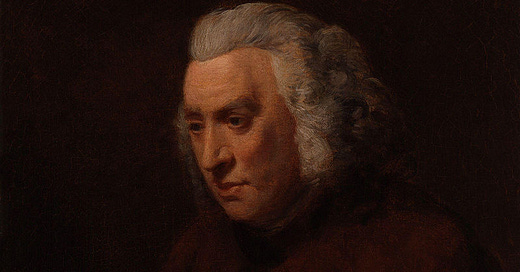The idea of a university has never undergone more radical changes than it has in the last sixty years. Many universities that once promised spiritual and intellectual formation now promise financial prosperity. Institutions of learning, once the moral lifeblood of a society, have become, and are becoming, businesses that wield their elitism as a marketing gambit. The academy is abandoning the ideal it was built upon.
These changes have necessarily altered the way academics understand their calling. Academics are the teachers, writers, researchers, doctors, and scientists who have dedicated their lives to the public good and whose work is in service to the health of the nation. Witnessing the corruption in the academy—the exploitation of early-career academics; the priority on publishing over teaching; its general indifference toward the teacher and lecturer and, consequently, its students; its expurgation of the best that the liberal arts has to offer in favor of money—has forced many of its greatest minds to fulfill their calling elsewhere.
The academy tells its academics: your work is valuable insofar as it supports the monetary interests of your institution. This message is often at odds with the academic’s higher calling to the public good.
No one has described the higher calling better than Samuel Johnson. In his brief essay “On the Character and Duty of an Academick” (1793), he wrote:
An academick is a man supported at the public cost, and dignified with public honors, that he may attain and impart wisdom. He is maintained by the public, that he may study at leisure; he is dignified with honours, that he may teach with weight. The great duty therefore of an academic is diligence of inquiry, and liberality of communication. Of him that is appointed to teach, the first business is to learn, an unintermitted attendance to reading must qualify him to be heard with profit. . . .
Our colleges may be considered as the citadel of truth, where he is to stand on his guard as a sentinel, to watch and discover the approach of falsehood, and from which he is to march out into the field of controversy, and bid defiance to the teachers of corruption. For such service he can be fitted only by laborious study, and study therefore is the business of his life; the business which he cannot neglect without breaking a virtual contract with the community.
This vocation of the academic is no longer supported by the current model of academia. The adjunctification of labor, the publish-or-perish culture, the marginalization of teaching, administrative bloat, and the general erosion of the liberal arts have created an environment in which the duty of the academic is nearly impossible. Many of the finest minds abandon the academy, disillusioned and displaced.
What is Needed Now
Some believe the answer is destruction. There are many professed wise men who would have the academy utterly dismantled—men who, ironically, are the direct beneficiaries of the intellectual wealth distributed by the academy. Such are like vandals who, after glutting themselves on the fruit of land, uproot the vineyards; or like iconoclasts who destroy the monuments of a civilization they neither understand nor value. If the academy were destroyed, I fear to imagine what hideous forms would be erected in its vacancy.
What is needed now is not destruction but reform, the kind of reform that only those within the academy can bring about. Departments in the humanities must once again make themselves visible to the public. They should host lectures, book talks, and civic conversations as demonstrations of their enduring relevance. The academy must loosen its grip on hyper-specialization, which too often cloisters scholars in jargon and obscurity, and instead reward those who cultivate breadth, clarity, and relevance.
Most crucially, institutions must renew their commitment to teaching, its highest and most sacred trust. They must seek out and uplift teachers whose enthusiasm animates the classroom and whose love of learning proves contagious.
True reform will not come by policy alone, but by the restoration of the sense of public good. The academy must also support public-facing scholarship. It must encourage its academics to sally forth “into the fields of controversy” to write, speak, and teach beyond its walls. Only by doing so can colleges reclaim their place as citadels of truth and servants of the public good. The academy again could be a place where academics flourish.




Such a brilliant piece—increasing visibility of the humanities is so crucial! The humanities is only dead if we allow it to die
I can't deny your observations as a teacher of students, who lives directly within the reality of the academic. But I have found as a student that the teachers I have had in college and university, and including you on Youtube, are very passionate about what they teach. My own passion for literature would not be as nearly as strong without my basic education that I have received thus far. The theory classes I have been in and the creative writing classes as well, have been well-populated with students of some passion. I think education itself is important. Doubly so for the aspiring writer: as Eliot himself said that writer must know the canon!